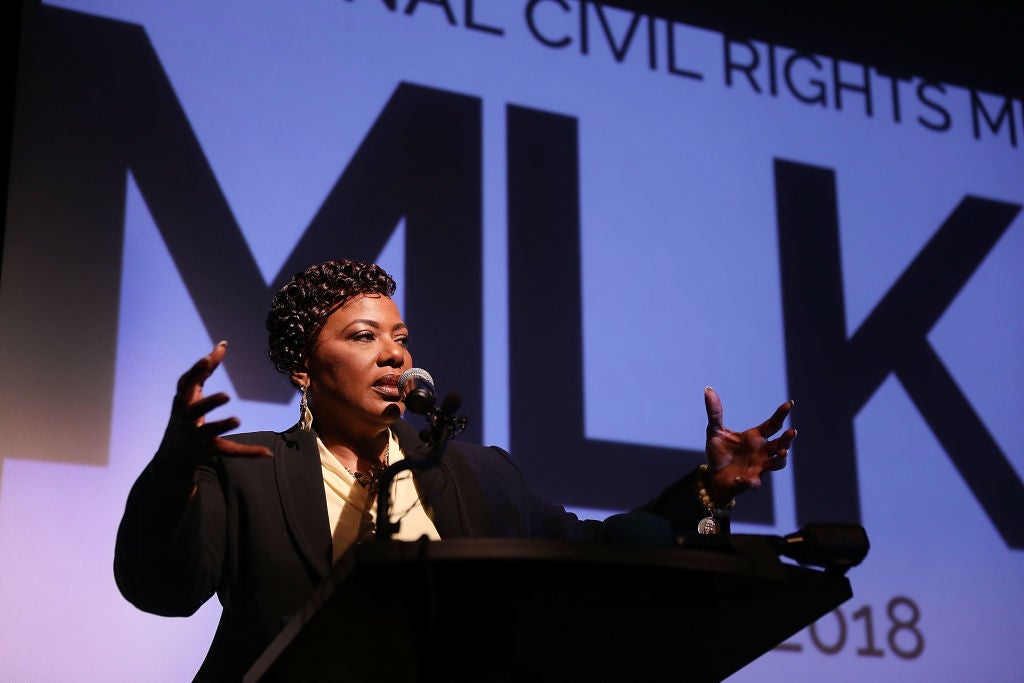Martin Luther King Jr’s daughter criticises Tory MP Ben Bradley for appropriating father’s words
Bernice King said the words were a call to action to end racism in the US

Your support helps us to tell the story
From reproductive rights to climate change to Big Tech, The Independent is on the ground when the story is developing. Whether it's investigating the financials of Elon Musk's pro-Trump PAC or producing our latest documentary, 'The A Word', which shines a light on the American women fighting for reproductive rights, we know how important it is to parse out the facts from the messaging.
At such a critical moment in US history, we need reporters on the ground. Your donation allows us to keep sending journalists to speak to both sides of the story.
The Independent is trusted by Americans across the entire political spectrum. And unlike many other quality news outlets, we choose not to lock Americans out of our reporting and analysis with paywalls. We believe quality journalism should be available to everyone, paid for by those who can afford it.
Your support makes all the difference.A Conservative MP was criticised by Bernice King after he misinterpreted a famous quote given by her late father, Martin Luther King Jr.
Ben Bradley, who is the MP for Mansfield, published a tweet referring to the activist’s “I have a dream” speech from 1963, where he urged for better civil and economic rights for black Americans and called for an end to racism.
The since-deleted tweet said: “’I have a dream … will one day live in a nation where they will not be judged by the colour of their skin, but by the content of their character.’
“His point was than [sic] skin colour doesn’t matter. We’re equal. Now you want to define people by their physical characteristics?”
In response to Mr Bradley, Ms King, a minister and the CEO of Martin Luther King Jr. Center for Nonviolent Social Change, wrote in response: “My father’s point and central to his beliefs, teachings and activism (per his speeches/books) was this: We cannot condone racism, but must eradicate it as one of the pervasive, systemic, overt and destructive Triple Evils, with militarism and poverty being the other two.'"
She added: “To that end, we should his words [sic], not to ignore racism, but to stop the type of suppression of Black votes that’s being attempted in Georgia, Pennsylvania, and Michigan right now. And to end health, policing and housing disparities driven by racism. Eradicate racism.”
Mr Bradley told The Independent: "I talk a lot about issues around identity; around race, gender, sexuality. These are not simple arguments that can be laid out in 280 characters and people seek to find the worst possible interpretation. The point I wanted to make is that if we’re seeking a situation where we don’t judge people by the colour of their skin, I don’t see how it’s helpful to bring every discussion back to singling people out by their skin colour.
“When you end up in a position where we read about businesses that are segregating their staff by race, that would seem a huge backwards step and exactly the kind of thing that Martin Luther King was campaigning against. It would be a really interesting discussion to have with Bernice King actually, but not one we’re ever likely to be able to have sadly as the ‘go-to’ response from the ‘Twittersphere’ is just to hurl abuse. I sensed a big pile on was coming so I just deleted it. I didn’t want to go through that again as it has an impact on my family.”
It comes after he previously urged for better equality for men during the International Men’s Day debate in the House of Commons last week.
Within his speech, he said: “Why have a minister for women, but not for men? Why single out one characteristic for special mention? Can we ensure equality means just that, rather than positive discrimination at the expense of certain groups?”
He later posted on Twitter saying he was criticised by many for his comments in the House.
“The slating I'm currently getting for pointing out that the Equalities Act is about #EQUALITY,” He wrote. “Ie male is equally protected as female, straight equally protected as gay, white = as black etc just goes to prove how deep the total misunderstanding/misuse of the Act really goes!”
He later on clarified that while he was not hoping to change the anti-discrimination law, known as the Equality Act 2020, but was rather suggesting it should be “correctly used and interpreted in practise.”



Join our commenting forum
Join thought-provoking conversations, follow other Independent readers and see their replies
Comments